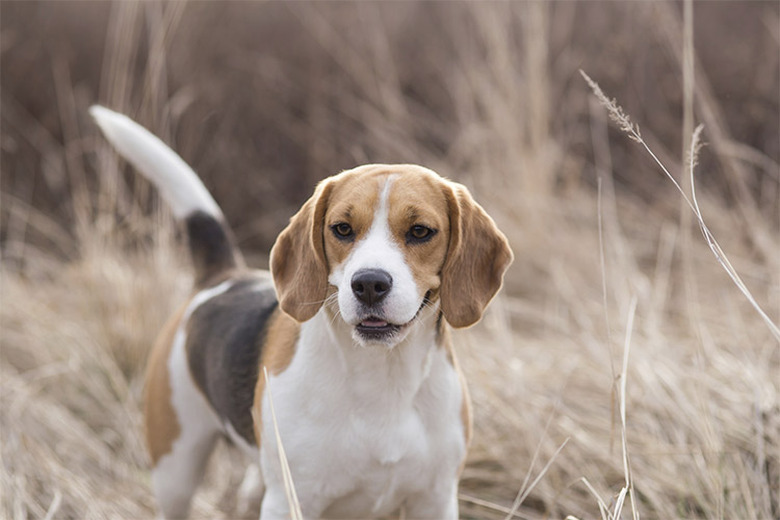History And Characteristics Of Hunting Dogs
From the tiniest terrier to the largest Irish wolfhound, hunting dogs follow their noses, ears and eyes to potential prey. This instinct has made these animals a valuable asset to hunters throughout history and to police, military and search-and-rescue organizations. The same intelligence, perseverance and courage bred into these dogs sometimes spells trouble for pet owners who don't understand a hunting dog's mental and physical needs.
History
Man has hunted with dogs for thousands of years. Each breed of hunting dog was developed to detect, track, catch and retrieve the particular prey animal in its location. For example, Labrador retrievers were trained to retrieve caught fish in Newfoundland waters, while Rhodesian ridgebacks were bred to hunt African lions. Over the millennia, each breed became more and more specialized according to the hunter's needs. The dachshund began as a medium-sized dog farmers used to unearth the large badger, but later was miniaturized to tunnel after the smaller weasel or rat. Today, most hunting dogs are family pets and rarely fulfill their ancient hunting roles.
Types
Hunting dogs were developed to hunt by scent—e.g., basset hounds and bloodhounds–or sight—e.g., greyhounds and Salukis. Other hunting dogs were bred to retrieve the hunted quarry, like Portuguese water dogs and Labrador retrievers. The North American Versatile Hunting Dog Association opts for an all-around hunting dog that can "dependably hunt and point game, to retrieve on both land and water, and to track wounded game on both land and water."
Features
Scent hounds typically have bodies low to the ground and long ears that funnel the prey's scent into their sensitive noses. Their large, deep-nostriled snouts and moist loose lips help scent hounds process the odors they detect. Sight hounds are tall and have large eyes with sharp acuity. They are long-legged and swift so they can keep their quarry in their sights. Scent hounds can be much slower than sight hounds, since they can detect prey long after it has passed by, even over water.
Breeds
Many breeds have been developed to help humans hunt large and small game. Dachshunds and terriers hunt small to medium burrowing game like badgers, weasels and rats. Beagles and foxhounds chase foxes and rabbits. The Saluki was used to hunt the swift gazelle in Egypt. Labrador and golden retrievers are adept at retrieving shot birds from the water. Pointers and setters show hunters where game is located and then flush the prey out to be killed. Considerations Dogs bred for a job like hunting companion are sometimes difficult to keep as pets. They generally have high energy and a need to be doing something useful. Their instincts can lead to behavior problems if they are not kept busy. Some need to be watched very carefully. Greyhounds, for example, should always be kept on a leash when not in a fenced yard. They often bolt after anything moving—a bicycle, car, another animal—and get lost or injured. Dachshunds will tunnel out of an insecure yard. Terriers can chew on their squeaky toys or your favorite slippers. Obedience training and plenty of mental and physical exercises are essential to keep hunting dogs calm and happy.
References
North American Versatile Hunting Dog Association: Versatile Hunting Dog
American Kennel Club: Saluki
American Kennel Club: Irish Wolfhound
Dachshunds for Dummies; Eve Adamson; 2001.
About the Author
A freelance writer for more than 30 years, D.M. Gutierrez has had nonfiction, fiction and poetry published in women's, mystery, academic, children's, disability and teen print publications and websites including "Psychological Reports" and "Highlights for Children." She has an advanced degree in psychology from the University of California at Davis.
